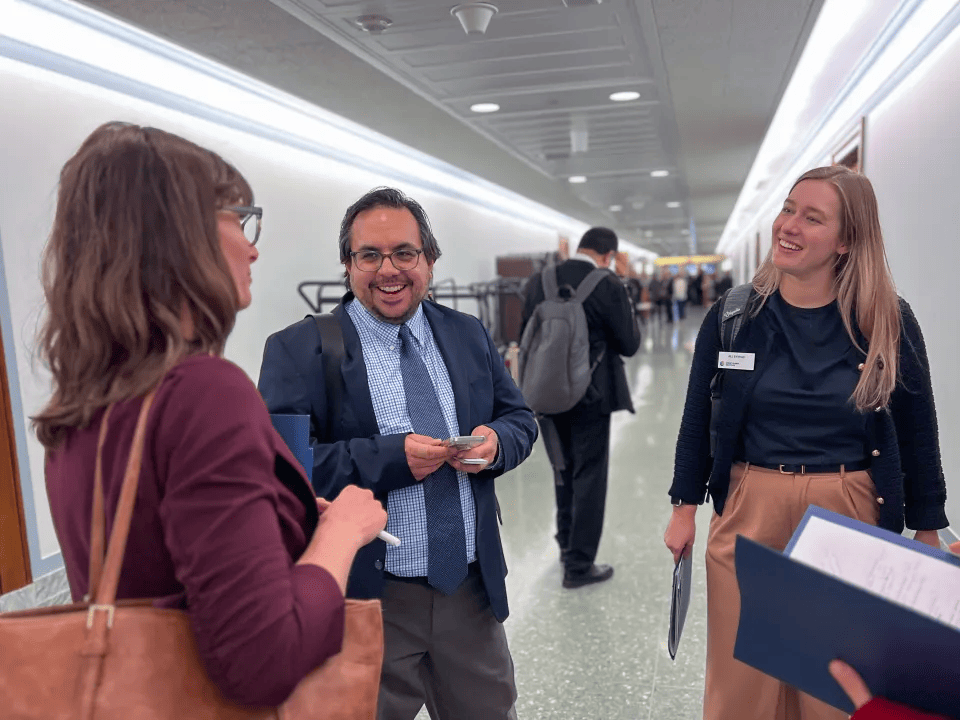Industry, labor, and nonprofit representatives recently headed to Capitol Hill to advocate for federal policies that can put the industrial sector on track to reaching net-zero carbon emissions by 2050, both a national and global goal to curb the worst potential effects of climate change.
The Industrial Innovation Initiative (I3), run by the Great Plains Institute (GPI) and World Resources Institute, organized the day to share recommendations from its new 2024 Federal Policy Blueprint that represents the priorities of 19 signatory members of its coalition from a broad range of backgrounds.
I3 kicked off the day at the Capitol with a media briefing roundtable, including the American Council for an Energy-Efficient Economy’s Pavitra Srinivasan, LanzaTech’s Tom Dower, Laborers’ International Union of North America’s Ryan Sandmann, Portland Cement Association’s Josh Reiner, and GPI Communications Director Drew Henry as moderator. Members then headed to 13 Congressional offices of both chambers and parties to discuss bipartisan industrial decarbonization next steps.
“The US very clearly cannot meet its climate goals unless we address industrial emissions, which is why we’re all here,” Dower said in the roundtable.
Speakers emphasized that establishing clear standards and monitoring for carbon emissions produced during the industrial production process to make products key to everyday life, such as cement and steel, will be critical in protecting domestic industrial facilities, particularly as other regions in the world begin implementing their own standards.
The I3 blueprint outlines actionable policy recommendations Congress and the Administration can adopt to protect industry while creating new job opportunities for local communities across the country. Several key recommendations include:
- Build-out of supportive infrastructure for carbon management and hydrogen, such as for transportation and storage, as well as improved regulatory oversight of these processes;
- Access to affordable, clean electricity to meet industrial energy demand while accounting for industrial needs across the energy system, such as further development of the transmission and distribution system;
- Robust data reporting and greenhouse gas benchmarking standards for embodied carbon that together underpin the success of green procurement and related policies; and
- Support for market innovation to enable the rapid scale up of cost-competitive, low-emissions technologies through government funding and support for existing markets or tax credits and RDD&D.
“You want to create a suite of technologies that will carry you through,” Srinivasan said.
These recommendations build upon the momentum of two pieces of landmark energy legislation Congress passed in the last few years – the Bipartisan Infrastructure Law and Inflation Reduction Act – that opened significant funding pathways for clean energy projects, research, and development.
“Where I see the blueprint being really helpful is filling in the gaps,” Dower said. “We’ve done the big stuff, but this is the connective tissue.”
Srinivasan noted protecting American trade competitiveness and implementing policies that improve American manufacturing benefit the country in numerous ways, including supporting good-paying jobs on the community level.
“In the end, it helps American communities. We’re breathing cleaner air,” Srinivasan said. “It’s building better projects.”
For more information on policy recommendations outlined, check out the 2024 Federal Policy Blueprint and the summary blueprint factsheet.

